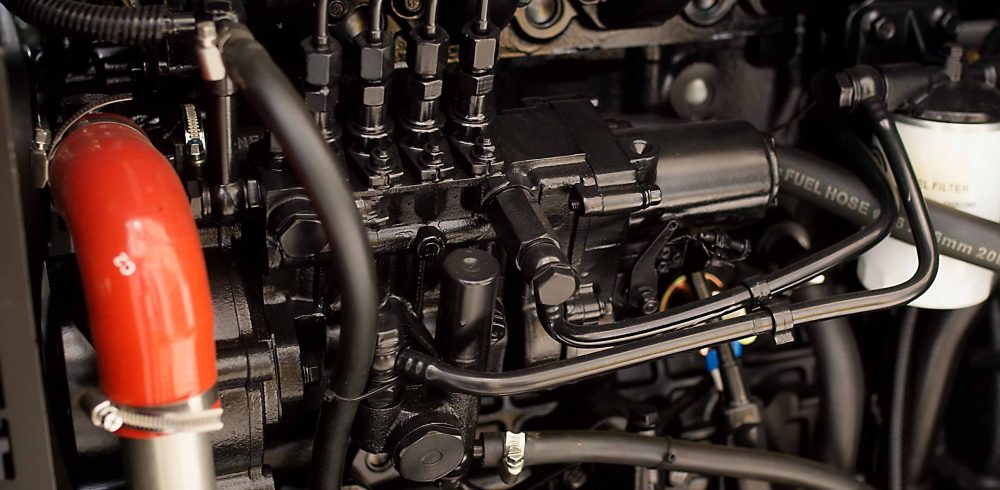Cortec latest corrosion solution for large engine testing and cold storage has been adopted by two major offroad engine manufacturers and is gaining ground internationally. In addition to resolving corrosion from residual water, VpCI®-649 BD has improved overall protection and is being categorically recommended for adoption by a trusted industry leader.
Challenge of Corrosion After Engine Testing
Engines are at risk both from flash rust immediately after hot testing and from corrosion during outdoor storage at the dealer. Since it is too difficult and expensive to completely remove water after hot testing, one manufacturer was using a fill and flush procedure to prevent residual water from freezing inside engines during several months of storage in cold regions. Unfortunately, more attention was paid to adding glycol than to monitoring the rust preventative until rust claims started to roll in and raise a clear warranty issue.
Process Improvements with VpCI®-649 BD
Cortec® looked at the situation and realized they could make a process improvement by adding VpCI®-649 BD to the engine cooling system during the hot test and subsequent glycol fill and flush. This water-based corrosion inhibitor is most often used for hydrostatic testing, leaving behind a protective film that inhibits corrosion in both the contact and vapor phases. That means VpCI®-649 BD will protect the surface to which it is directly applied as well as surfaces within the enclosure to which molecules are able to travel by vapor diffusion. The effect is more comprehensive protection than conventional rust preventatives used in this application.
Widespread Adoption of VpCI®-649 BD
Cortec® now recommends adding a 2% solution of VpCI®-649 BD to the engine coolant system during hot testing. After each fuel is tested in the running system for one hour, the engine can proceed to the fill and flush stage (if the engine is headed to a cold climate), where VpCI®-649 BD should be added at 5% to water and glycol for dual freezing/corrosion protection during six months to a year of outdoor storage. One major manufacturer started full-scale testing with these formulas in May 2023. Upon opening the engines after several months of outdoor storage in Germany, they found the internals in exceptional condition compared to their previous experience.
The Culmination of Decades
The discovery of this solution is the culmination of Cortec’s decades of experience both in rust prevention and engine testing. By taking lessons learned from customer trials, behavior, and feedback, Cortec® has been able to drive process improvements for greater flexibility and effectiveness in engine protection. Contact Cortec® to learn more about why VpCI®-649 BD is becoming the go-to product for corrosion protection during and after engine testing.
Manufacturing & Engineering Magazine | The Home of Manufacturing Industry News















